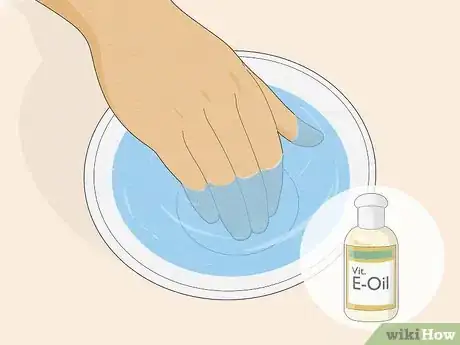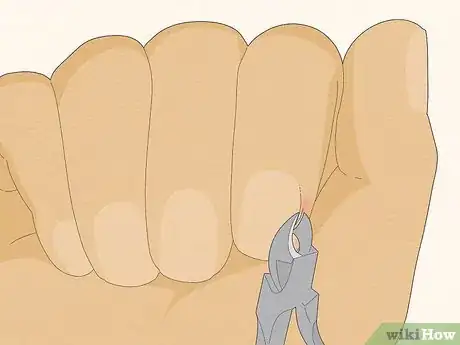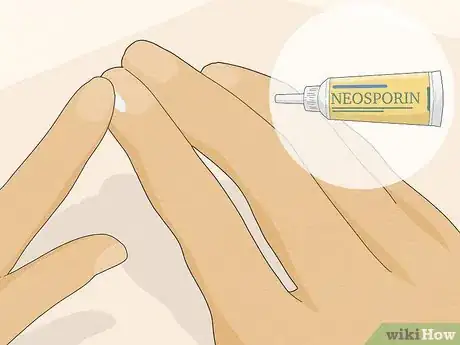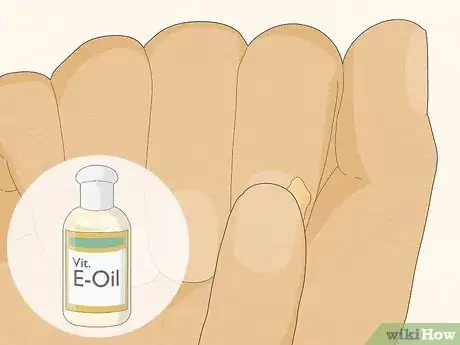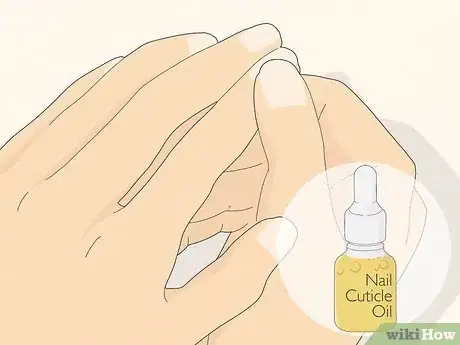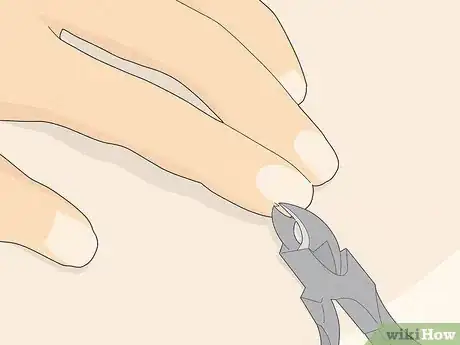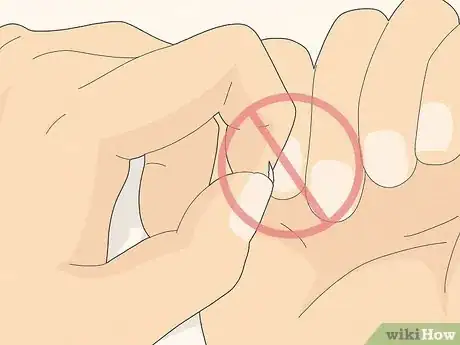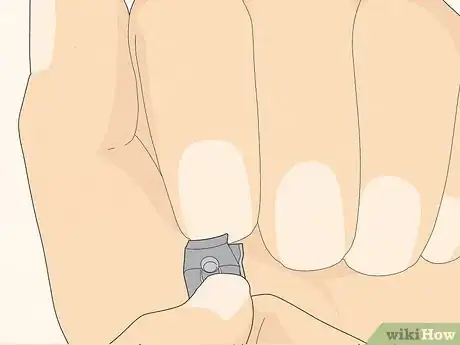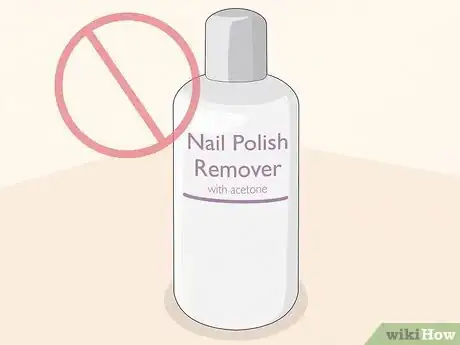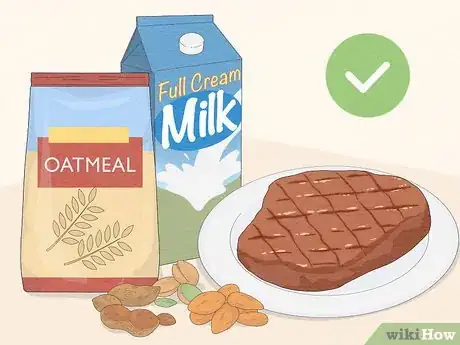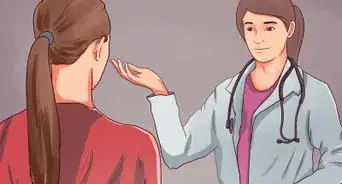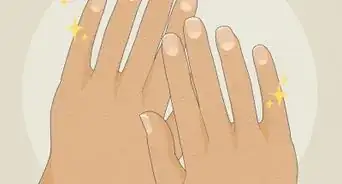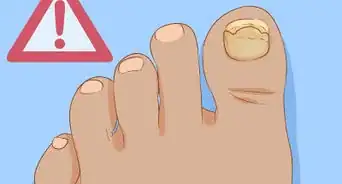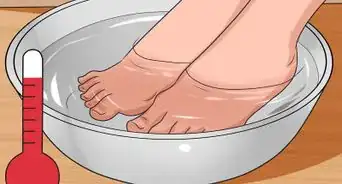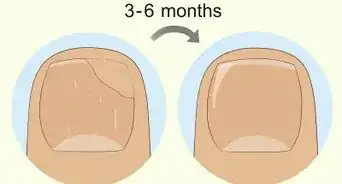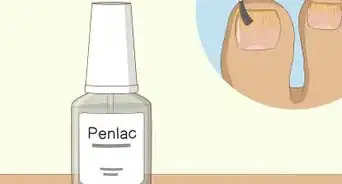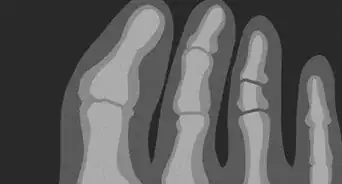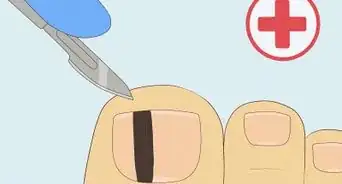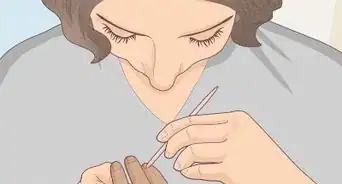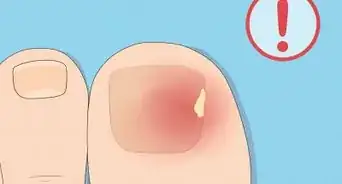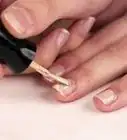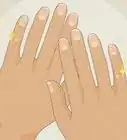This article was co-authored by Mia Rubie. Mia Rubie is a Nail Artist and the Owner of Sparkle San Francisco, a nail studio based in San Francisco, California. She has over eight years of nail artist and management experience and is known for her push-the-envelope designs and artistic eye for colors. Her clients include Sephora, Target, and Vogue. Her work has been featured in the San Francisco Chronicle and StyleCaster. She holds a BBA focusing on Entrepreneurial and Small Business Operations from San Francisco State University. You can find her work on her Instagram account @superflynails.
There are 8 references cited in this article, which can be found at the bottom of the page.
wikiHow marks an article as reader-approved once it receives enough positive feedback. This article has 21 testimonials from our readers, earning it our reader-approved status.
This article has been viewed 1,080,021 times.
Hangnails are pesky little skin tears that develop when a sliver of skin splits away from a cuticle or fingernail. Hangnails are small in size, but they can cause a great deal of pain if they get caught on your clothes or hair. Apart from that, there is also the possibility of hangnails getting infected, so it is important to take care of and remove hangnails the correct way, so as to avoid deep cuts, scarring, swelling, and infections.
Steps
Repairing Hangnails
-
1Soak your fingers. Soak your fingers in warm water for about 10 minutes. The warm water will help soften your skin and nails, which will make it easier to cut away the hangnail.
- You can add in some drops of vitamin E oil or olive oil for extra moisture during your soak.
-
2Clip your hangnail. Use clean and sharp cuticle nippers to cut off the hangnail. Try cutting as close to the base of the hangnail as possible. The closer you cut to the base of the hangnail, the less likely your hangnail will get caught on things like clothing.
- Do not pull and pluck at your hangnail. This will cause an uneven break from your skin, further irritating the area of the hangnail. Pulling at your hangnail could also cause bleeding.
- Do not cut off more skin or nail than what is necessary. This can create a deep cut that can easily get infected.
Advertisement -
3Apply an antibacterial ointment. The antibacterial ointment will help kill, and keep away bacteria from the hangnail area while supporting healing. You only need a small amount to cover the entire affected area.
- If your hangnail was deep, you can put a bandage on the hangnail to help prevent it from getting infected.
-
4Moisturize the hangnail area. For small hangnails that aren’t that deep, lather vitamin E oil onto the hangnail area. Vitamin E is easily absorbed into the skin and is extremely moisturizing. Besides vitamin E oil, applying any kind of moisturizer to your hands will prevent your cuticles from getting dry and brittle – conditions that promote the likelihood of hangnails.[1]
- Apply an oil or moisturizer multiple times a day, especially after handling hot water and washing your hands.
- You can use other moisturizers like petroleum jelly, honey, olive oil, and coconut oil to combat hangnails, and keep your hands soft and hydrated.
Preventing Hangnails
-
1Try to keep your nail beds moisturized. Dryness is the primary source of hangnails, so to prevent them, it’s very important to keep your hands moistened by applying deep penetrating lotions and oils to your hands.
- Use cuticle oil to moisturize the skin around your nails regularly, as it's more likely to shred if it's dry.[2]
- Dry your hands thoroughly any time you get them wet. Water actually acts as an irritant and can cause more pain.
- Drink enough water throughout the day to stay moisturized and hydrated.
- Consider wearing rubber gloves when working with detergents or water. This added precaution will protect your hands from drying out from the soap and water.
-
2Remove hangnails while they’re short. Instead of picking at your cuticles and only irritating your skin more, cut hangnails off as soon as you feel them. A sharp pair or cuticle nippers or nail scissors can trim the skin efficiently. This keeps the hangnails from getting caught on clothes and ripping deeper.
- Use your nipper and clip the hangnail straight, then pull it upward. Don't pull downward, as that could tear the skin.[3]
- If the hangnail area becomes red and swollen, you’ve probably developed an infection. In the event of an infection, start treating it by soaking your hangnail in hot water about 3 times a day. If you don’t see or feel any improvement within a few days, contact your doctor. You might need to start a round of antibiotics.[4]
-
3Avoid biting and picking at your nails. Biting your nails damages your nails and the skin surrounding your nails, which in turn increases your chances of developing a hangnail.[5]
- Having your fingers in and around your mouth increases the chances of a hangnail getting infected because of the different bacteria in your mouth.
- Don't pick at your cuticles, either. You'll likely leave your cuticle raw or bleeding, which can be grounds for a nail or skin infection.[6]
- Try keeping your nails painted if you find yourself biting them often. The taste will discourage you from chewing them.
-
4Trim your nails frequently. Use a pair of nail clippers to trim nails and keep them from growing too long. This can help prevent hangnail development. You can also use an orange stick to softly push cuticles back and keep them from growing onto your nail. Repeat the process once or twice a month.
- An orange stick is a thin, manicuring stick with one angled edge used to push back cuticles, and one pointed edge used to clean underneath the nails.
- Consider trimming your nails when they have been softened with some warm water. This will make cutting through the nail a lot easier.
- A regular manicure can help maintain healthy nails, and keep nail growth under control.
-
5Avoid acetone nail polish remover. Acetone nail polish is a very effective nail polish remover, but it can also significantly dry out your hands and nails. Since hangnails develop when skin and nails are dry, steer clear from drying products.[7]
-
6Maintain a healthy, balanced diet. Eat foods high in iron, calcium, and B-vitamins to strengthen your nails and prevent hangnails in the future. Try to drink at least 8 glasses of water per day to stay hydrated as well.[10]
- Consider taking a vitamin supplement if you don’t get enough through your diet.
- Biotin is a supplement that helps strengthen your nails. Ask your doctor if a supplement is right for you.[11]
Expert Q&A
Did you know you can get expert answers for this article?
Unlock expert answers by supporting wikiHow
-
QuestionHow are hangnails treated?
 Laura MartinLaura Martin is a Licensed Cosmetologist in Georgia. She has been a hair stylist since 2007 and a cosmetology teacher since 2013.
Laura MartinLaura Martin is a Licensed Cosmetologist in Georgia. She has been a hair stylist since 2007 and a cosmetology teacher since 2013.
Licensed Cosmetologist
-
QuestionHow do you stop getting hangnails?
 Laura MartinLaura Martin is a Licensed Cosmetologist in Georgia. She has been a hair stylist since 2007 and a cosmetology teacher since 2013.
Laura MartinLaura Martin is a Licensed Cosmetologist in Georgia. She has been a hair stylist since 2007 and a cosmetology teacher since 2013.
Licensed Cosmetologist
-
QuestionWhat is the cause of hangnails?
 Laura MartinLaura Martin is a Licensed Cosmetologist in Georgia. She has been a hair stylist since 2007 and a cosmetology teacher since 2013.
Laura MartinLaura Martin is a Licensed Cosmetologist in Georgia. She has been a hair stylist since 2007 and a cosmetology teacher since 2013.
Licensed Cosmetologist
References
- ↑ http://www.allure.com/beauty-trends/blogs/daily-beauty-reporter/2012/10/how-to-fix-and-prevent-hangnails.html
- ↑ Mia Rubie. Nail Artist. Expert Interview. 23 April 2020.
- ↑ Mia Rubie. Nail Artist. Expert Interview. 23 April 2020.
- ↑ http://health.howstuffworks.com/skin-care/nail-care/health/hangnails3.htm
- ↑ http://www.healthcare-online.org/Hangnail.html
- ↑ Mia Rubie. Nail Artist. Expert Interview. 23 April 2020.
- ↑ http://www.healthcare-online.org/Hangnail.html
- ↑ http://www.self.com/flash/nutritionnews/2012/03/to-acetone-or-not-the-healthie/
- ↑ http://www.self.com/flash/nutritionnews/2012/03/to-acetone-or-not-the-healthie/
About This Article
To get rid of hangnails, start by soaking your fingers in warm water for about 10 minutes to soften your skin and nails. Next, use clean and sharp cuticle nippers to cut off the hangnail as close to the base as possible. Then, apply a thin layer of antibacterial ointment to the affected area. Finally, follow up with a good moisturizer or vitamin E oil to prevent future hangnails. To learn more about preventing hangnails, read on!
